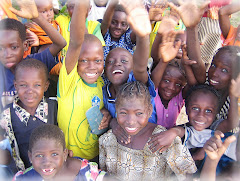When I wrote my evacuation plan, I didn’t think I’d ever
need it. But then the president of Burkina Faso
Fortunately I never needed it. The president stepped down and fled the
country. In the next 2-day period, we
went through about 5 different “interim presidents” as the people continued
protesting. To add to the chaos, random
people showed up at the national TV station to declare themselves president. But
after a brief transition headed by the military, in the end, everyone accepted
our current interim president.
Throughout the whole process, I’ve been praying that God
would change the former president’s heart.
Only God could do it. Just as
only God could change anyone’s heart.
I’ve been teaching an evangelistic English class for adults in
my spare time. Along with vocab and
grammar, we study the Bible in English.
At the beginning of the course, I asked students to draw 4 or 5 pictures
of things that describe them for a conversation activity. One student drew a moon and star symbol,
showing that Islam is very important to her.
But during our last class, we were talking about Saul’s conversion, and
this student said, “I think that God chose Saul to tell people about Jesus
because he was such a terrible person that when people saw how he had changed,
they would know it had to be God who did it.”
When it was time for me to close the class, she said, “No, this is so
interesting. I want to keep discussing.”
What I love about Saul’s conversion is that he didn’t change
his mind about Jesus and then just enjoy the new information. He had a driving desire to share this truth
with everyone else. I pray all the time
that God would give me such a desire to see hearts changed, and that He would
give the Christians of Burkina Faso this same desire. The kind of desire that makes thousands of
people willing to risk their lives to stand up to the military and the
president. The kind of desire that makes
people take the training we give them and start a Good News Club in their
neighborhood despite all the obstacles.
Only God can do that. So I can’t
thank you enough for praying with me.

